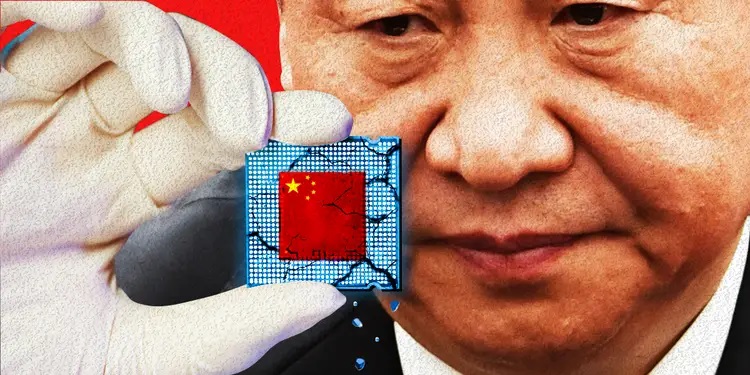On Friday, in Washington, current and former U.S. officials and private-sector executives voiced widespread concern that the United States has fallen behind China in the development of several key technologies and faces an uncertain future in which other countries could challenge its historic dominance in the development of cutting-edge communications and computing technology.
Special Competitive Studies Project, an initiative led by former Google CEO Eric Schmidt, called for the meeting in order “to ensure that America is positioned and organised to win the techno-economic competition between now and 2030, the critical window for shaping the future.”
Attendees felt that the nation’s chances of winning the competition were diminishing.
Also Read: High-skilled visa holders at risk of deportation amid tech layoffs
The forecasts are gloomy, to say the least.
The SCSP released a report just days before the summit that foretold dire consequences should China take over as the world’s technological leader.
“Understanding the stakes requires imagining a world in which an authoritarian state controls the digital infrastructure, enjoys the dominant position in the world’s technology platforms, controls the means of production for critical technologies, and harnesses a new wave of general purpose technologies, like biotech and new energy technologies, to transform its society, economy, and military,” the report states.
The report foresees a future in which China, rather than the U.S., reaps the benefits of the new technological advancements and uses its leverage to argue that autocracy, rather than democracy, is the superior form of government.
The report paints a bleak picture of a future in which China develops and possibly controls the key technology supporting critical infrastructure in countries all over the world, and in which individual countries limit the flow of information to their people.
Also Read: Chinese chipmakers caught in US-China tech spat
The report concludes by expressing concern that China could then cut off the supply of “microelectronics and other critical technology inputs,” causing the U.S. military to lose its technological edge over China and other competitors.
“There are no sure things.”

Speaking at the summit, White House national security adviser Jake Sullivan seemed to agree that the United States faces significant challenges in keeping pace with China in the development of new technology.
Keeping America’s strength and competitive advantage abroad is not guaranteed, Sullivan said. For the United States to maintain its technological preeminence, “we know that it has to be renewed, revitalised, and stewarded.”
He warned, “we’re facing a competitor that is determined to overtake U.S. technology leadership and is willing to devote nearly limitless resources to doing so,” and that country was China.
Also Read: Apple Is Apparently Closer to Integrating Non-Invasive Glucose Monitoring Technology to Its Watch.
It’s not fast enough

Retired Army General H.R. McMaster, who was Trump’s national security adviser, participated in the event as a panellist. A quickening of the pace is required, he said, but progress is being made.
There have been too many years of complacency based on faulty assumptions about the nature of the post-Cold War world, which has led to the current situation, which is “not going fast enough,” as McMaster put it.
As he put it, “We need export controls now, to prevent China from getting a differential advantage [while maintaining our competitive advantages].” He was calling for a more concerted effort to halt China’s technological advancement.
Whenever asked about U.S. export controls, China’s Foreign Ministry spokesperson Mao Ning has been quick to criticise Washington’s attempts to slow Beijing’s technological development.
Also Read: MCD to use drone, hi-tech gadgets to combat dengue this year, focus on G20 sites









